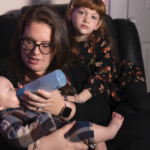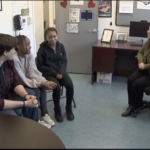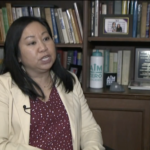Although my daily routine does not include reading Australian news, a social media headline from the Jan. 26, Sidney Morning Herald caught my eye: “Kids are Dying: Calls for Headspace to Publish Waiting Lists.”
Headspace is the name for 110 centers located across Australia that employ mental health and other health professionals to address the health and emotional well-being of young people from ages 12 to 25.
Visits to Headspace, which is funded by the Australian government, are advertised as free of charge. When there is a crisis, they assess risk and formulate a plan in collaboration with the young person seeking help.
Sounds great! So, why the ominous headline? Too many teens in crisis are on Headspace’s waiting lists, which run up to three months. Many have given up hope. Tragically, some are becoming statistics in Australia’s climbing suicide rate.
“Every time a young person in crisis was turned away,” says Headspace Chief Executive Jason Trethowan, it puts them another step closer to “pushing them over the edge.”
Jumping from Australia to the United Kingdom, on Oct. 8, 2018, The Guardian reported that the Royal College of Psychiatrists surveyed 500 diagnosed mental health patients and discovered that some had waited up to 13 years to get the care they needed.
One 20-year-old woman with a history of childhood trauma responded to the survey by stating it took her eight years, until the age of 15, to get treatment. “I was suicidal, but no one would help me. I kept asking for help, and kept being pushed away. Either I wasn’t ill enough to meet the threshold for services, or the waiting list was simply too long,” she noted.
In the U.S., it is too-often the same demoralizing story about disenfranchised youth on waiting lists who end up in hospital emergency rooms that lack adequate psychiatric personnel. For a child survivor of trauma, an ill-equipped ER waiting room often becomes a trigger as opposed to a respite.
Increasingly, economic realities have pushed mental health clinics in the New York metropolitan area to fill the ranks of their staff with fee-for-service workers who carry overflowing caseloads of Medicaid patients. Those patients are seen back to back at 30-minute intervals, factory-style.
At North Shore Child & Family Guidance Center, 20 percent of all admissions come to us as crisis situations, including kids who talk and act as if they don’t want to live. Or, they have endured such trauma in their short lives that they have ceased to function well at home and school. We guarantee to see such emergency cases within 24 to 48 hours — and we don’t kick them out the door after 30 minutes.
Steps are taken to evaluate and reduce the level of risk right from the start to prevent traumatic ER trips. It takes a mission-driven, salaried workforce to get this done properly.
We are pleased that referral sources such as schools and pediatricians understand that we are readily available to all families regardless of income and that they will be evaluated and assigned care rapidly. This is no easy task — certainly not one that can happen in conveyor-belt-style every half hour on the half hour.
Although time is of the essence in the case of an emergency, triage is a thoughtful process that cannot be rushed. Distinctions are made. For example, there is a difference between a high-level emergency involving a child with suicidal thoughts and few if any social supports; and an urgent situation with a child that is verbalizing suicidal feelings, but who is participating in activities, speaking with parents, attending school and clearly has no intent or plan to take his or her life.
In both situations, a careful assessment is needed to understand the level of risk in order to counsel the family accordingly. It is life-and-death work. There are no shortcuts. A dedicated team of salaried professional staff is essential. Yet such places are in short supply.
The Headspace headline — “Kids are Dying” — falls on deaf ears when it comes to mental health care. Someone advised me that if you want to shake things up, you need to examine why you are awake and how you just relate to those who are asleep. One mom carried the ashes of her deceased teenage son to a legislative hearing to awaken the slumbering legislators.
It shouldn’t take ashes to ask for help.
Andrew Malekoff is the executive director of North Shore Child & Family Guidance Center, which provides comprehensive mental health services for children from birth through 24 and their families. To find out more, call 516-626-1971 or visit www.northshorechildguidance.org.













